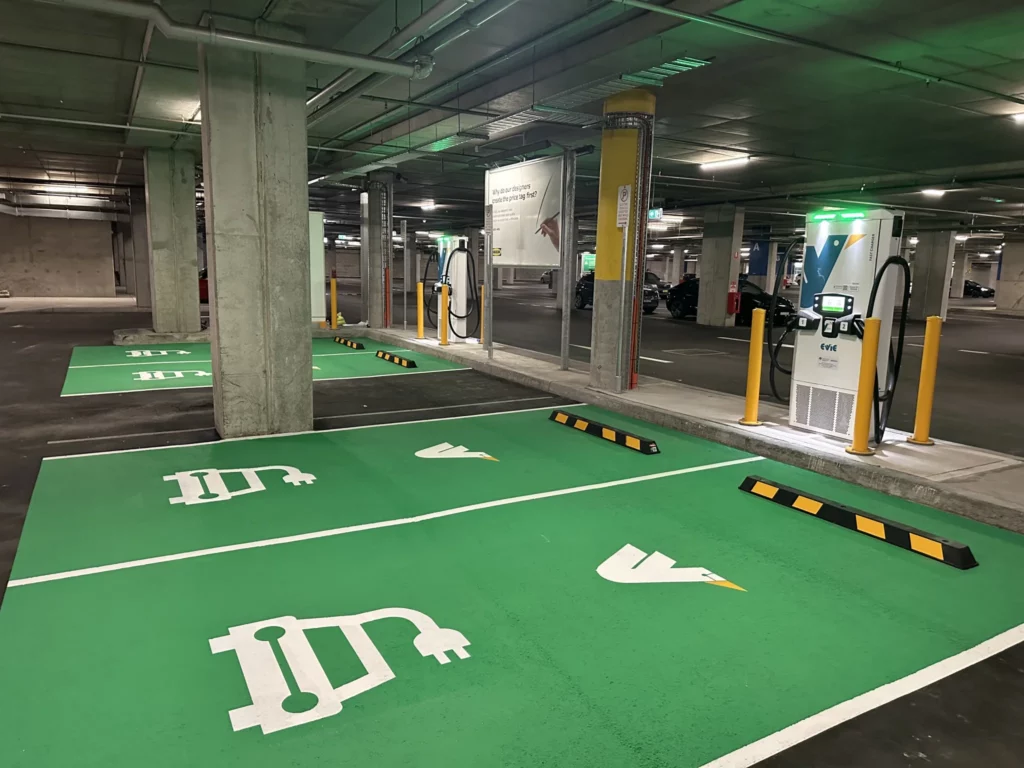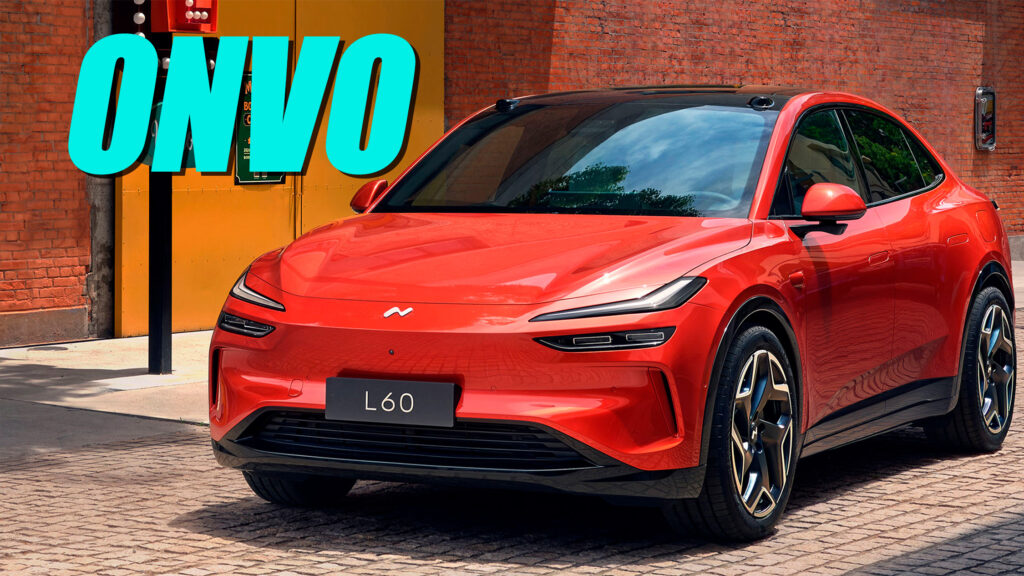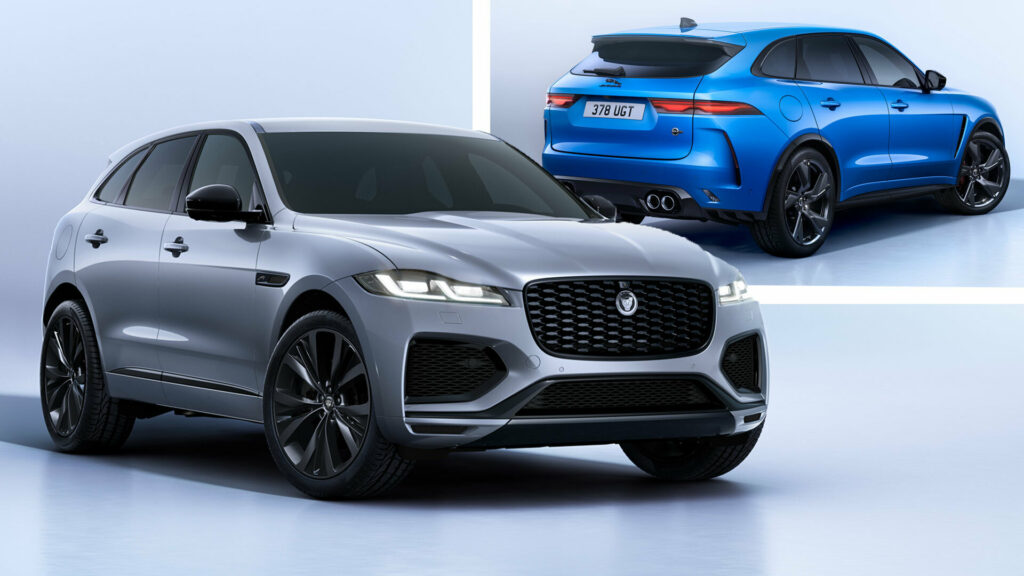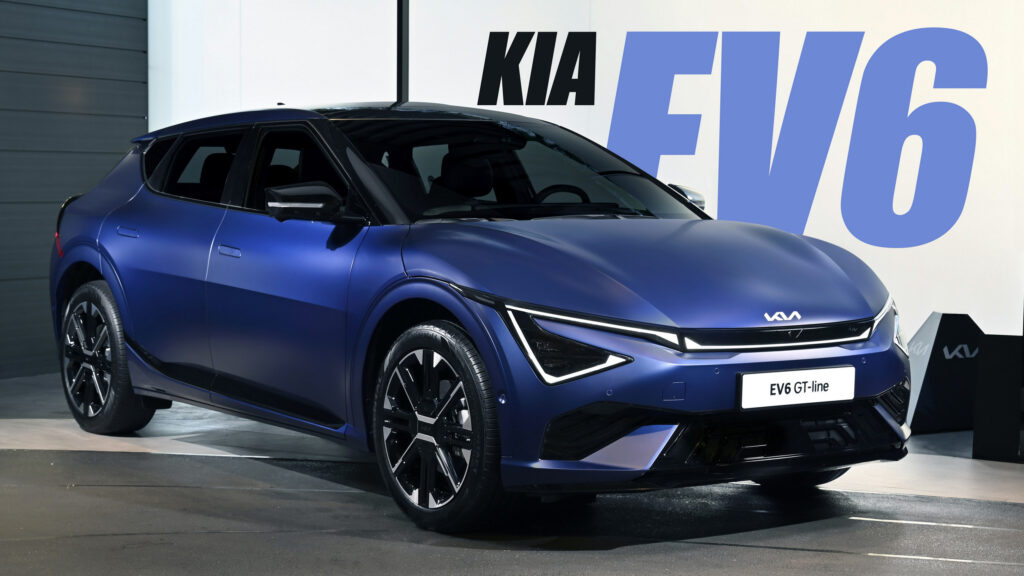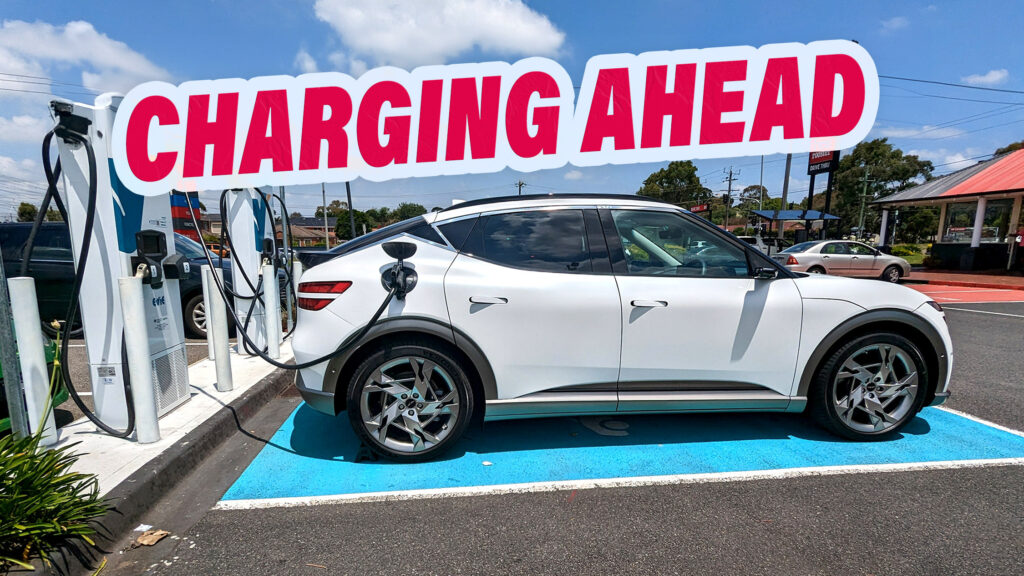The Australian government wants to ensure that local electric vehicle owners have access to a consistent and reliable charging network and from January next year, will start to enforce new uptime standards.
The federal and state governments will require all state-funded EV chargers to work at least 98% of the time. This standard is similar to the 99% uptime requirement of the UK and the 97% uptime being targeted in the United States and should help ensure that EV owners have a better charging experience. Compared to many other countries, Australia’s EV charging network remains limited so ensuring that charging stations work is especially important.
One of Australia’s largest providers of fast chargers, Tritium, claims the chargers it operates through the Evie Network in Australia currently work 97% of the time, The Driven reports. We’ve tested Evie chargers on numerous occasions and have found them to be reliable and easy to use, something which cannot be said about rival Chargefox, officially Australia’s EV charging network.
More: Reporter Tried Over 120 EV Chargers in LA—Nearly 30% Were Broken
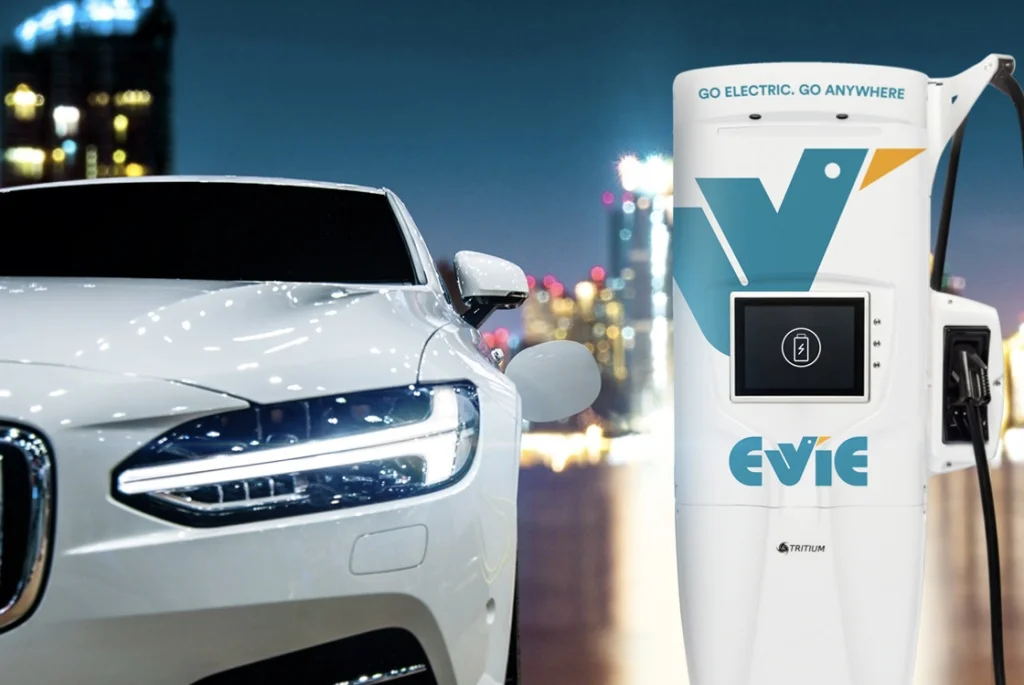
In addition to new rules necessitating 98% uptime, changes to EV charging standards will also require each charging site to include at least two DC charging units with a minimum of two plugs each and at least one bay per site must meet disability-accessible parking bay standards. Additionally, at least 70% of DC fast chargers must include CCS Type 2 plug connectors, reducing the proportion of CHAdeMO plugs that are almost exclusively used by the Nissan Leaf in Australia.
Read: Drivers Could Be Fined Over $2,000 For ‘ICE-ing’ EV Chargers In Australia
New regulations will also ensure charging stations have cables long enough for all EVs regardless of the positioning of their charging ports. Charging stations with a capacity of 150 kW or more should also include a plug-through charging bay for vehicles that are towing. State-funded chargers will also switch to a standardized payment system.
“As part of the National Electric Vehicle Strategy, the Albanese Government is working with states and territories on national consistency to give Australians greater access to charging infrastructure for cleaner, cheaper to run cars,” a spokesperson for federal energy minister Chris Bowen said. “This includes collaborating on payment methods, accessibility, and universal chargers so that EV drivers can access a convenient, affordable, and equitable national charging network. Minimum operating standards will help simplify administration, address range anxiety and send a strong signal to Charge Point Operators on baseline requirements.”
